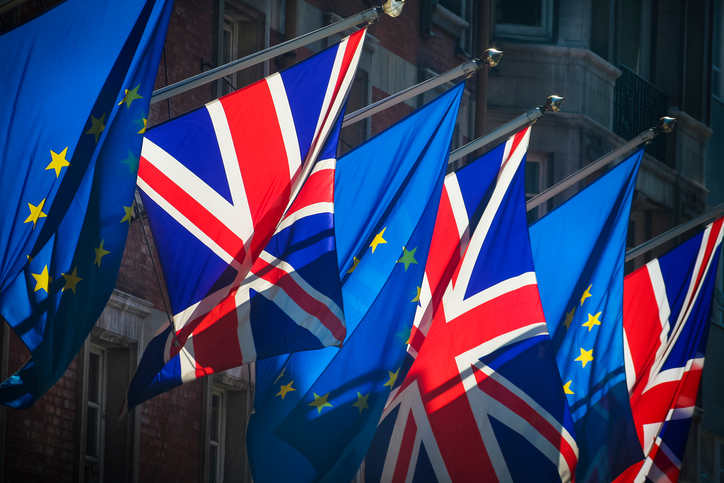How to Brexit, Trump and terror-proof your events planning

It’s more than a year since the shock of the EU referendum. The initial hysteria may have died down but we still don’t know how a post-Brexit Britain will look, or how we will fit into Europe without being in the EU.
Since June 2016, we’ve had other shockwaves to ride. The Trump presidency and now the lurking spectre of impeachment, a snap general election as well as, a heightened terrorist threat in the UK.
The UK events industry has been as anxious as any other to see how this political and economic uncertainty will impact business. Will we suffer through the weakened pound, travel restrictions due to the fallout from the horrific Manchester bombing, or market dips resulting from the FBI investigation into Trump’s Russian connections?
The short answer is, we don’t know. We do know the waters ahead look choppy but that doesn’t have to mean we’re heading for the rocks. In fact, there could be plenty of opportunities within our grasp if we focus on the positive actions we can take amongst all the uncertainty.
Politics, the markets and how they ruffle the events world
Political unsteadiness generally leads to all sorts of market jitters and budget cuts. Yet, in the months following the Brexit referendum, there was a reported growth in event and marketing spend; two budget areas that are traditionally among the first affected.
According to the Q4 2016 Bellwether report, growth in events marketing spend was up by a net balance of 12.3%: a 2% increase on the previous quarter’s 9.9% and only marginally below the record level of 13.4%, registered in Q2 2016.
By the end of Q1 2017, however, the upward trend had flattened out. The overall UK economic outlook was positive in the first quarter of the year, forecast to grow 2% over 2017. That has now been revised, however, to 1.5%, due largely to higher than predicted inflation of 2.7%, lower wage rises of 2.4% and weak exports.
Analysts are finding it very difficult to forecast 2017 more than a quarter ahead, with arguments raging over whether we’re going to see movement up or down at any one time. The only thing they seem to be able to agree on is that our economy is in a state of flux.
With the only real certainty in today’s world being an uncertain financial and political climate, is wise spending and forward planning our best bet for keeping the events industry on track? Or do we have to think more broadly if we’re going to weather the Brexit-Trump-terror storm?
How can events managers work with unreliable budgets in an uncertain world?
Planning ahead is always going to be important for events managers and never more than now. With unreliable budgets, it’s time to sharpen those pencils. Strictly prioritise your essentials and relegate anything you don’t really need to the ‘nice-to-have’ list.
Good planning feeds down into everything else; providing a greater understanding of the target audience and allowing wise spend around attracting and engaging the right people, maximising ROI. Now is absolutely the time to be as creative as possible – but in a very focused way.
Uncertainty is the word on everyone’s lips and the events industry is buzzing with speculation as to what the future holds. According to Kevin Jackson, Chair of the International Live Events Association, pragmatism is key: “We need to keep doing what we do best. We’re an events industry; there’s always a deadline and always a delivery and as long as we keep delivering we’ll be ok.”
Steve Garvey, Chairman of EVCOM, is convinced the industry will thrive, providing it stays vigilant and hungry for opportunities. He said: “The biggest risk now is the uncertainty, which encourages people to delay investment decisions. What will delivering events in Europe look like in five years’ time? It’s important for us in the industry to make opportunities out of this.”
One universal truth shines through all the conjecture: key to success is using whatever budget you have in the smartest possible way. With uncertainty on every level, financial directors are going to want to see evidence that any investment has been well researched and planned.
This is not the time for finger-in-the-wind experimentation. Events professionals will be gauged on results perhaps more harshly than ever before, so planning is going to be critical. As Abraham Lincoln is famously quoted as saying: “Give me six hours to chop down a tree and I will spend the first four sharpening the axe.”
For event managers, axe-sharpening is market and customer research: find out what the target audience wants and use real-world data to design events that attract them.
Millennials and Gen Z: Changing audience in addition to a changing Europe
By 2020, it’s expected that Millennials will constitute almost 50% of the workforce. Millennials are defined as people who became adults around 2000. If you’re 35 years old in 2017, you’re a millennial yourself. Generation Z-ers are graduating now; they are defined as being born after 1995.
It is primarily the experience of only knowing a world of ubiquitous technology that separates millennials and Gen Z-ers from those born earlier. They are better at multitasking than any former generations, able to concentrate on a laptop, iPad and phone quite comfortably. They are also, probably due to immersive interactive gaming, far more drawn to experiences than objects.
This shift is critical for event managers considering how best to engage with this changing audience on constricted budgets. Giving away free stuff just isn’t going to get you the attention you want anymore, meaning budget spent on mugs, pens or USB sticks is going to generate less and less ROI.
According to an Eventbrite study, Millennials are experience-hungry, far more driven to finding novel experiences than collecting material things. Analysts theorise that this behaviour is due to these young people growing up through the financial crisis, therefore valuing experiences that generate a good feeling far more than ‘things’.
65% of those surveyed said they were driving the ‘experience economy’ through buying real-life experiences over possessions, while 66% said they felt more fulfilled by live experiences than purchasing an item of the same value. 62% plan to increase the amount of money they spend on experiences, rather than possessions, over the next twelve months.
This information is gold-dust for marketers wanting to engage with Millennials. Using data such as this inspires focused creativity and spend around event planning. It will help you ensure you create memorable events that appeal directly to this audience – because they are also the audience of the future.
Potential opportunities Brexit could bring
Despite all the uncertainty, many industry pundits are talking about potential opportunities Brexit could bring to the UK events industry. Our weakened pound could entice European businesses to host their events in Britain, for instance, boosting our economy and reducing travel spend for UK companies.
Sally Balcombe, CEO of Visit Britain, said: “We are actively monitoring sentiment in overseas markets through press and PR, social media, travel trade and partners. There has been wide coverage in most markets on the weakened GBP, stating this is the best time to travel to Britain, with many markets expecting to see an increase in travel at least for the short term.

Nick de Bois, Chair of the Events Industry Board is very optimistic. “The British events sector is hugely respected for its creativity and strength. Britain is open to doing business with the rest of the world. We can go far and drive relationships and do more around the world. It is an opportunity for the sector to do very well in markets we haven’t been active in.”





